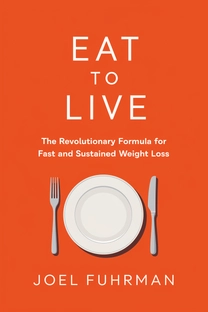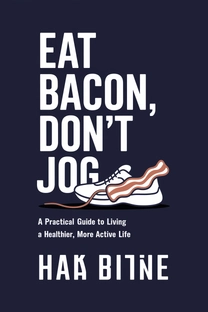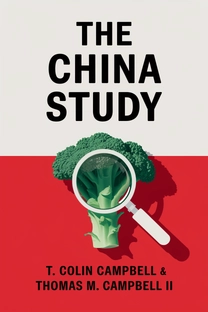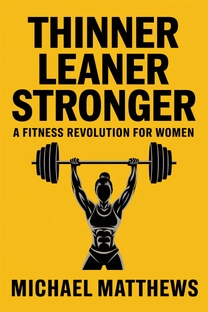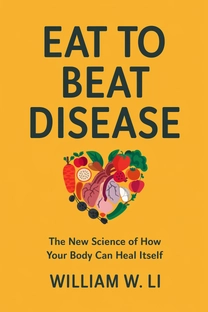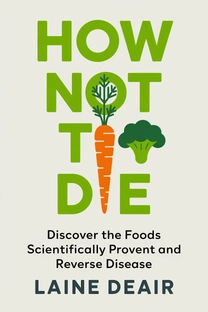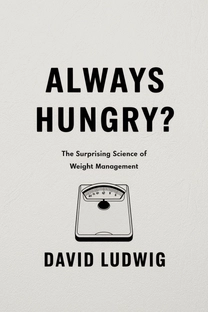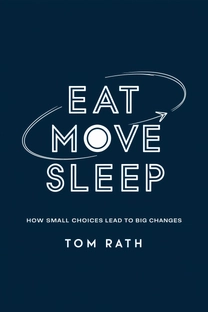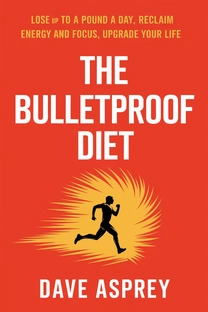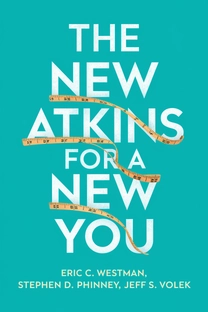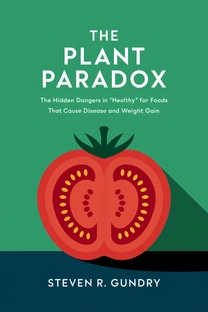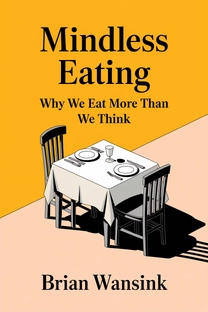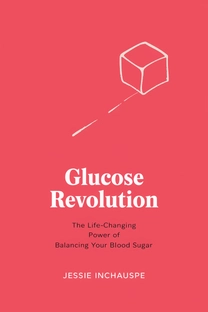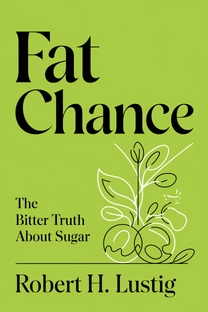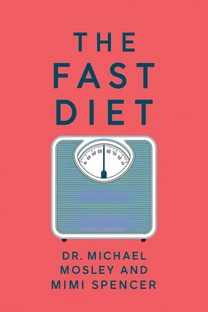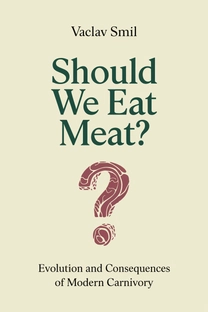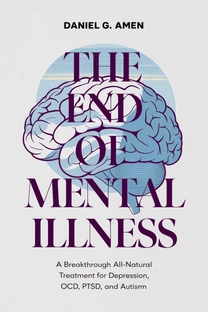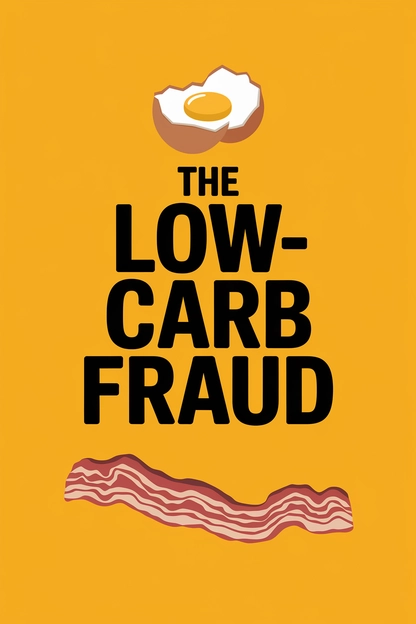
The Low-Carb Fraud
by T. Colin Campbell, Howard Jacobson
Brief overview
This book investigates the common misconceptions surrounding low-carb diets and unveils the real science behind effective, long-term eating habits. It emphasizes how a diet rich in whole, plant-based foods can create lasting health rather than momentary weight loss. Readers will gain a grounded perspective on why understanding nutrition holistically is the best way to protect both body and mind.
Introduction: Rethinking the Low-Carb Craze
Have you ever been told to skip all bread and pasta to lose weight quickly? It sounds tempting, but does it really guarantee true health? Many people have fallen for the promise of low-carb diets, believing they’re finally on the path to a sleek waistline, only to find themselves battling fatigue, irritability, or worse. This first page sets the stage by asking a simple question: Are we sacrificing long-term wellbeing when we cut out entire food groups, especially the very carbs that fuel our bodies? Let’s take a fresh look at the low-carb phenomenon and uncover what really lies behind the headlines.
In the pages ahead, we’ll explore the difference between short-lived success and solid, stable results. You’ll see how focusing on one nutrient can blind us to the bigger picture of nutrition. So grab an open mind as we break down each piece of this puzzle, from the enormous popularity of bacon-and-butter diets to the surprising benefits of fueling up on complex, plant-based carbohydrates.
This journey begins with a closer look at the origins of the low-carb trend. Before we jump into the research, ask yourself: Why do we latch onto these diets so quickly? And who profits from our confusion and desire for quick-fix solutions? Understanding that will help us see clearly how these diet fads begin—and why their claims so persistently stick.
Behind the Low-Carb Promise
For decades, low-carb advocates have promised rapid weight loss—some going as far as calling their plan a miracle solution. The hype usually starts with compelling before-and-after photos, stories of dramatic transformation, and strict rules to reduce or eliminate breads, grains, and most fruits. There’s no denying that many experience some weight drop quickly. But the critical question remains: What happens after two months, a year, or even a decade on such a restrictive lifestyle?
A central problem is that low-carb enthusiasts rarely address the underlying causes of weight gain, such as excess calories from poor-quality foods and an overreliance on packaged fare. Instead, they paint carbs as the villain—lumping together nutrient-packed whole grains with sugar-laden soda. It’s like condemning all forms of transportation simply because some cars pollute. This narrow viewpoint can lead to unintended consequences, including nutrient deficiencies and a stalled metabolism. Meanwhile, the industries that sell these diet programs, shakes, and supplements benefit from the cycle of superficial success followed by relapse.
So why do people keep falling for this? Often, it’s the lure of instant gratification. Many diets emphasize rapid weight loss but ignore the importance of overall health. It’s not enough to fixate on pounds lost without looking at energy levels, heart health, and ongoing disease prevention. That’s where the conversation around whole foods comes in—a balanced perspective that doesn’t demonize an entire nutrient group.
What is The Low-Carb Fraud about?
The Low-Carb Fraud by T. Colin Campbell and Howard Jacobson challenges the prevailing notion that reducing carbohydrates is the key to effective weight loss. Instead, it delves into the science-backed benefits of a whole, plant-based diet for sustainable health. The authors examine how short-term results from popular low-carb diets can mask deeper health concerns, urging readers to refocus on nutritional wholeness.
In the book, Campbell and Jacobson meticulously reveal the misleading marketing tactics that have fueled the low-carb craze, often overshadowing the genuine science of nutrition. By promoting a diet rich in whole, plant-based foods, they argue that individuals can foster long-term well-being and disease prevention. Their insights are both a critique of dietary fads and a call to action for holistic nourishment.
This book matters significantly as it empowers readers to understand nutrition deeply, beyond temporary diets. It provides a comprehensive view of why a plant-based approach outweighs low-carb promises, encouraging informed decisions that promote lasting health.
Review of The Low-Carb Fraud
In The Low-Carb Fraud, Campbell and Jacobson expertly unravel the allure of low-carb diets, exposing their shortcomings while advocating for a plant-based approach. The book's strength lies in its ability to dissect complex nutritional science into engaging narratives that debunk myths around modern dieting trends.
The authors meticulously reconstruct the foundation of nutrition, urging readers to move beyond the fleeting appeal of rapid weight loss. The book emphasizes the practical steps of replacing processed, low-nutrient foods with wholesome, plant-based alternatives—a lifestyle change that promotes long-lasting wellness rather than temporary triumphs. Written with both authority and accessibility, its insights are relatable to nutrition novices and seasoned health enthusiasts alike.
Echoing a sentiment of clarity and sincerity, the authors recommend a mindful eating approach built on variety and naturalness. Their conversational tone invites readers to reconsider their dietary assumptions, making a strong case for plant-based nutrition as the focal point of a healthy life.
Who should read The Low-Carb Fraud?
- Health Conscious Individuals: Seeking a scientifically sound perspective on sustainable eating habits, these readers benefit from the book's emphasis on plant-based diets and long-term wellness.
- Nutrition Enthusiasts: Interested in the science behind diet trends, this audience gains valuable insights into the benefits of whole foods over low-carb solutions.
- Dietitians and Nutritionists: Professionals can incorporate the book's research-backed approaches into their practices to guide clients towards healthier lifestyle transitions.
- Chronic Disease Sufferers: Individuals managing conditions like heart disease or diabetes can learn how a plant-based diet aids management and improvement.
- Skeptics of Fad Diets: Those doubtful of diet trends will find validation in this book's critique of low-carb myths and its holistic food philosophy.
About the author
Book summaries like The Low-Carb Fraud
Why readers love Mindleap
10-Minute Book Insights
Get the core ideas from the world's best books in just 10 minutes of reading or listening.
Curated For You
Discover your next favorite book with personalized recommendations based on your interests.
AI Book ExpertNew
Chat with our AI to help find the best book for you and your goals.
Reviews of MindLeap
Love how I can get the key ideas from books in just 15 minutes! Perfect for my busy schedule and helps me decide which books to read in full.
Alex R.
The summaries are incredibly well-written and the audio feature is perfect for my commute. Such a time-saver!
Jessica M.
Great app for personal growth. The insights are clear and actionable, and I love how they capture the essence of each book.
Chris P.
The app is beautifully designed and the summaries are top-notch. Definitely worth every penny!
Sarah K.


